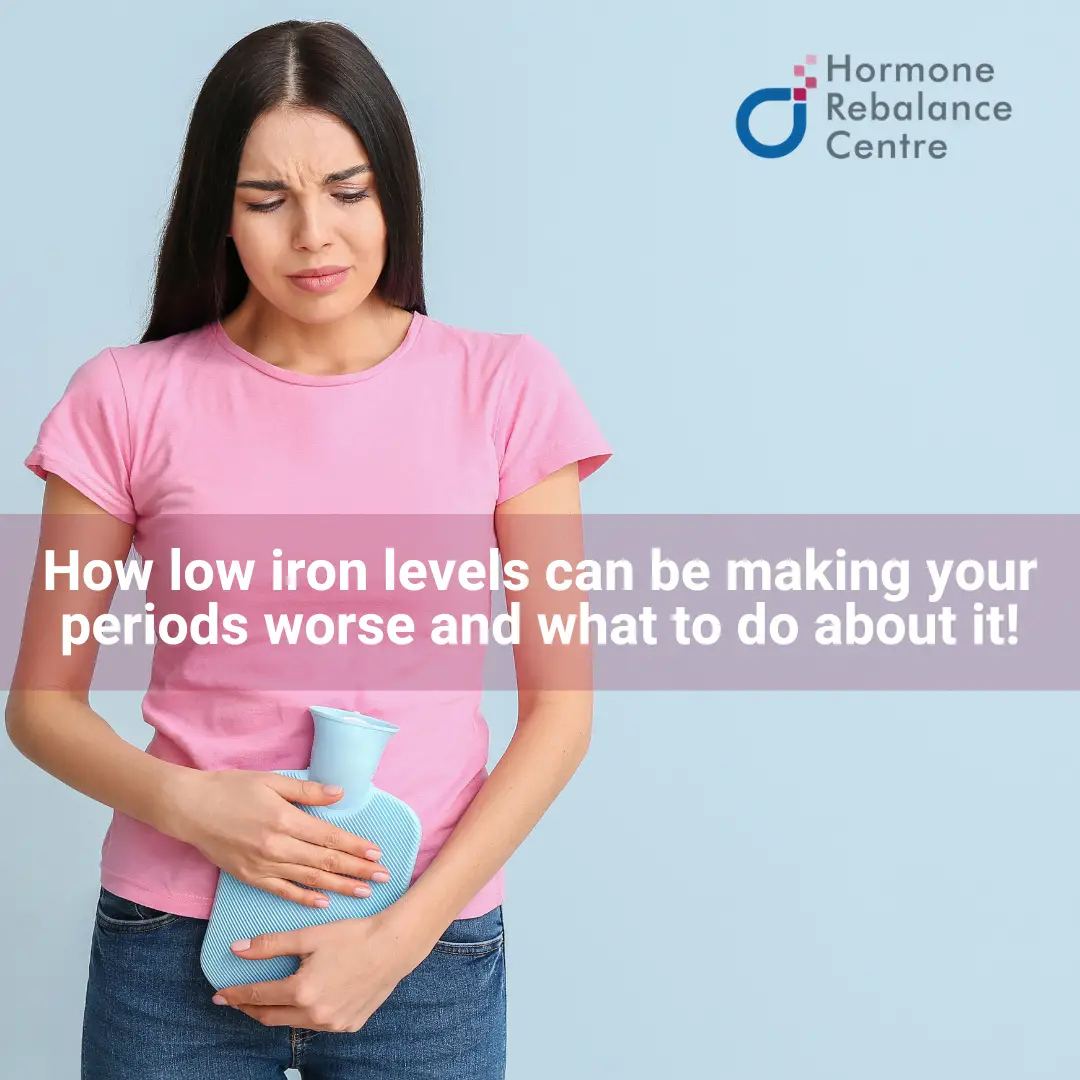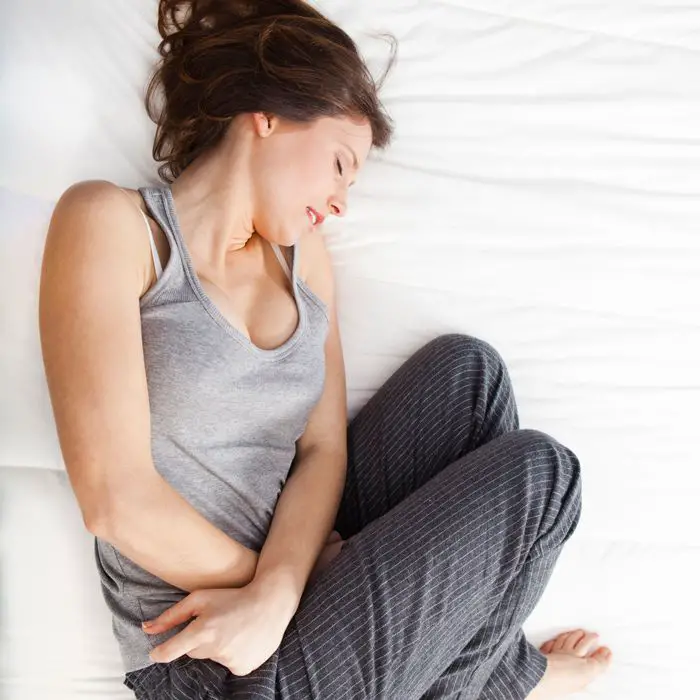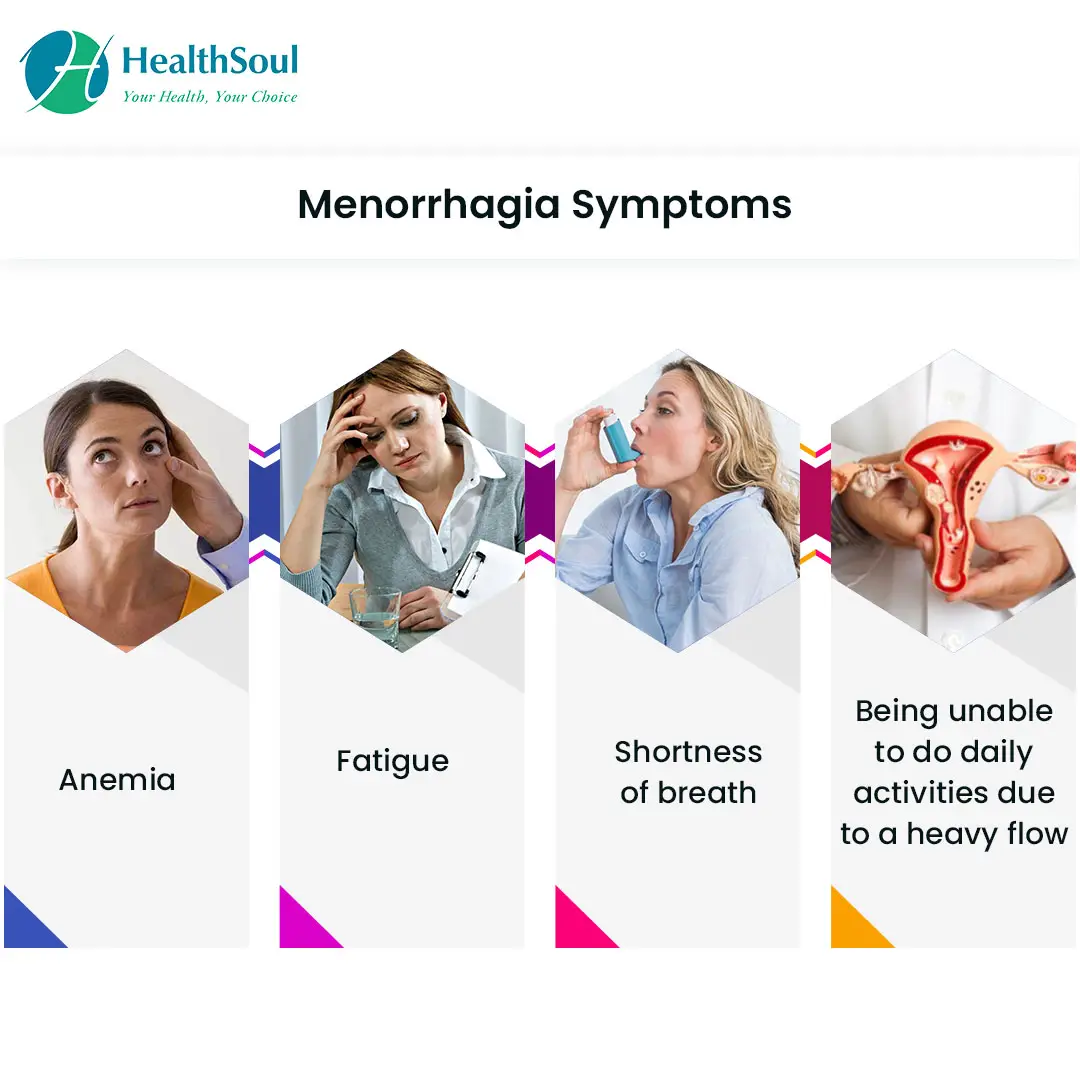When To See A Doctor For Pms Fatigue
For most women, feeling tired and fatigued before their period is not cause for concern. However, severe fatigue accompanied by intense sadness, extreme and lasting irritability, or a feeling of losing control emotionally could be signs of premenstrual dysphoric disorder .
PMDD is a more acute form of PMS that often requires treatment.
If youre feeling exhausted before your period, to the point that it is difficult to function normally with life, work, or school, schedule an appointment with your doctor. Getting screened for PMDD allows your doctor to prescribe appropriate treatment that will reduce your symptoms.
Feeling Tired During Your Period
If you have extreme fatigue on your period, you may be dealing with another menstrual challenge: a rapid depletion of iron levels in your blood.
Around 30% of people with periods experience menorrhagia heavy menstrual bleeding but even light bleeders will see a reduction in iron levels. In addition to severe fatigue during your period, you may also exhibit pale skin and muscle weakness.
Low iron levels can exacerbate period fatigue because women are notoriously iron-deficient. Thats due to diet, but also because women need twice as much daily iron as men. During pregnancy, they need more than three times the intake of men.
Some countries have taken a lead on the issue. Australia, for example, advises its citizens that menstruation is a time of increased nutritional demand. Iron deficiency can often be resolved through a change in diet, or by ingesting a daily iron supplement.
Fatigue during your period may be a simple case of iron deficiency, but in rarer instances, you may have a more serious condition like iron deficiency anaemia, hypothyroidism, or hyperthyroidism. See your medical professional if you suspect that may be the case.
Underlying Health Issuesthe Dangerous Side Of Menstrual Fatigue
Unfortunately, period fatigue can be a sign of an underlying issue in your health. This is why menstrual fatigue and other severe symptoms require the attention of a doctor. While a doctor will help you arrive at a specific diagnosis, common culprits include hypothyroidism, iron-deficiency anemia, and anemia-inducing health issues.
Recommended Reading: What Type Of Doctor Diagnoses Chronic Fatigue Syndrome
Stressheightening Every Source Of Menstrual Exhaustion
Your period can throw off your hormonal balance in more ways than one. The emotional inconsistencies, physical aches, and other menstrual symptoms you may experience may result in some serious stress. These stressors are taxing on both your mind and your body.
When you feel tired, it can be challenging to perform well at work, school, or home. In this sense, fatigue is both caused by stress and creating it. This can create a toxic cycle of stress and fatigue that lasts for the duration of your period.
When To See A Medical Provider

See your healthcare provider if your fatigue does not respond to at-home treatment, especially if your period is causing sleep problems that then interfere with your daily life.
Talk to your doctor or primary care provider if your PMS symptoms are unmanageable and affect your ability to carry out daily activities.
They will be able to determine the right treatment plan for you.
Recommended Reading: How To Treat Compassion Fatigue
Is Heavy Menstrual Bleeding Serious
Heavy menstrual bleeding can be serious if you lose so much blood that you show signs of anemia. Anemia is a condition arising from having too little iron in your body. Anemia can be life-threatening without treatment.
Also, some of the conditions that can cause heavy period bleeding, like cancer, require early medical intervention. Speak with your healthcare provider to discuss any risks related to your period bleeding.
What Causes Extreme Fatigue During Menstrual Cycle
During the second half of the menstrual cycle, around the time women start experiencing symptoms of PMS, estrogen levels peak and then fall quickly causing you to feel tired or sluggish.
When should I go to the ER for heavy menstrual bleeding?
Heavy menstrual bleeding, called menorrhagia, is fairly common but may lead to serious complications. Untreated heavy menstrual bleeding can cause anemia. If you experience weakness, dizziness, shortness of breath, or chest pain along with heavy menstrual bleeding, its recommended that you seek medical attention.
What are the symptoms of losing too much blood during period?
Signs and symptoms of menorrhagia may include: Soaking through one or more sanitary pads or tampons every hour for several consecutive hours. Needing to use double sanitary protection to control your menstrual flow. Needing to wake up to change sanitary protection during the night.
Also Check: Extra Long Anti Fatigue Kitchen Mats
Expert Management For Painful Periods And Heavy Bleeding
For most women, menstrual cycles occur about every 28 days, and periods last four to seven days. Abnormal menstruation includes problems such as heavy bleeding, known as menorrhagia, irregular menstrual bleeding, and pain during periods, known as dysmenorrhea.
UT Southwestern gynecologic surgeons, specialists, and their teams are nationally recognized for their expertise in womens health care. We participate in research to improve diagnosis, management, and treatment for heavy, irregular, painful periods. Our specialists are also faculty members, dedicated to educating future womens health doctors and other care providers.
How Do I Know If I Have Menorrhagia
Unfortunately, many people that experience heavy menstrual bleeding do not get medical help because they assume their periods are supposed to be uncomfortable and inconvenient. Their concerns may have been dismissed by family members that experience similar symptoms or even healthcare providers that did not take their concerns seriously. However, your flow should never require you to accept inconvenience or restrict activities long-term.
During your period, you should be able to:
- Wear a standard absorbency pad or tampon for three to four hours without changing it for a new one.
- Wear a single sanitary product without needing to double up at any point.
- Leave your home for a few hours without planning to bring extra bags of pads or clothing changes.
- Live your life as you normally do, without avoiding public places or missing work.
If your period is disrupting your life, it is time to visit your healthcare provider and start working on a plan to find and treat the cause.
Recommended Reading: Can Chronic Sinusitis Cause Fatigue
How Is Heavy Menstrual Bleeding Treated
Treatment depends on what’s causing your bleeding, how severe your bleeding is, your health, age and medical history. Also, treatment depends on your response to certain medicines and your preferences. For instance, you may not want to have a period at all, or you may want to reduce your bleeding. In addition, your plans to get pregnant will affect your treatment options.
Talk with your provider about your health concerns and your goals for treatment.
Medications used to treat heavy menstrual bleeding
- Iron supplements improve your iron stores.
- Nonsteroidal Anti-inflammatory Drugs like Ibuprofen® or Aspirin® can ease your cramps and reduce your bleeding.
- Birth control may help make your periods more regular and lighten your blood flow.
- Hormone therapy can help balance the amount of estrogen and progesterone in your body so that your menstrual flow isn’t as heavy. HT is often recommended for heavy menstrual bleeding associated with perimenopause but comes with risks that you should discuss with your provider.
- Gonadotropin-releasing hormone agonists can temporarily stop or reduce bleeding by preventing ovulation.
- Gonadotropin-releasing hormone antagonists can manage heavy period bleeding related to fibroids.
- Desmopressin nasal spray can stop bleeding associated with von Willebrand disease by helping your blood clot.
- Antifibrinolytic medicines, like tranexamic acid, prevent clots from breaking down and causing excessive bleeding.
Procedures used to treat heavy period bleeding
Why Is My Period Suddenly Heavy This Month
Its common for a cycle to be heavier than usual now and then. But if it seems very different from how it usually is, you may want to call your doctor to rule out any underlying causes. If you are sexually active, take a pregnancy test, since a miscarriage or ectopic pregnancy can lead to heavy bleeding and pain and be life-threatening.
Another reason for your period to suddenly be heavier is if you started, switched, or stopped birth control. Taking a blood thinner, even aspirin or ibuprofen, may cause a heavier period. Infections of the uterus, including sexually transmitted infections , can also cause an abnormally heavy menstrual flow.
Don’t Miss: Weight Gain And Adrenal Fatigue
How Do You Survive Period Fatigue
15 Ways to Combat Tiredness
How do you tell if you are hemorrhaging during your period?
Symptoms
- Soaking through one or more sanitary pads or tampons every hour for several consecutive hours.
- Needing to use double sanitary protection to control your menstrual flow.
- Needing to wake up to change sanitary protection during the night.
- Bleeding for longer than a week.
- Passing blood clots larger than a quarter.
What does big blood clots in period mean?
People may worry if they notice clots in their menstrual blood, but this is perfectly normal and rarely cause for concern. Menstrual clots are a mixture of blood cells, tissue from the lining of the uterus, and proteins in the blood that help regulate its flow.
What do endometriosis blood clots look like?
They can be bright red or burgundy and may vary in size. They are usually mixed with liquid blood. The longer the blood stays inside the uterus, the darker it is in color, and the likelier it is to form clots.
How long does period fatigue last?
This lasts for up to seven days, but the duration can vary from person to person. However, one common symptom that develops in most women who are menstruating is fatigue, as they complain of persistent tiredness and lack of energy.
What does an endo flare feel like?
How do you fight period fatigue?
Tips for fighting fatigue
Why Do I Get So Fatigued During My Period

Lets be realperiods can be hard to manage at times. The cramps, inconvenience, cravings, and hormonal changes may be overwhelming. When you add fatigue into the mix, the negative effects of every other symptom becomes intensified. But why do you get so fatigued during your period?
Fatiguefeeling overtired or having abnormally low energycan interrupt your work, personal life, relationships, and well being.
In the field of functional medicine, we know that taking the time to understand the underlying source of the problem is the first step towards feeling better. Here are some of the causes of menstrual fatigue and how you can start feeling more like yourself during your period.
Recommended Reading: How To Stop Afternoon Fatigue
Causes Of Heavy Menstrual Bleeding
How do you know when your period is normal and when its not? Menstrual bleeding is different for every woman and can change as you age. There might be days when you have a heavy flow and cramps, which is completely normal. But if you have heavy bleeding that interferes with daily activities, you could have a condition called menorrhagia, or heavy menstrual bleeding.
Heavy menstrual bleeding can be caused by subtle health problems that can go unnoticed. In some cases, a larger health issue is the problem. For instance, endometriosis can cause painful and heavy periods. March is Endometriosis Awareness Month, so now is a good time to get familiar with its symptoms.
If you experience heavy menstrual bleeding, it might be time to talk to your doctor. Your doctor will ask you about your health history, perform a physical exam and may order tests like an ultrasound, Pap test or blood tests. After your doctor rules out other potential health problems, they may be able to diagnose you with menorrhagia.
Signs and symptoms of menorrhagia may include:
- Soaking through one or more sanitary pads or tampons every hour for several hours
- Waking up in the middle of the night to change their sanitary pads
- Using two sanitary pads to manage heavy menstrual bleeding
- Bleeding longer than a week
- Passing blood clots larger than a quarter
- Restricting daily activities due to heavy menstrual bleeding
- Symptoms of anemia, tiredness, fatigue, and shortness of breath
What Is Very Heavy Period Flow Or Menses
Normal blood loss during period in women is usually less than 80mls. If your period is more than 80mls then it is heavy. However, it may be difficult to calculate how much of blood youve lost during menstruation.
One easy way to know is the frequency at which you change you pads. If you change pads too frequently than usual it could mean heavy or increased menstrual flow.
Read Also: Heartburn Nausea Fatigue Headache Bloating
Symptoms Of Painful Periods And Heavy Bleeding
Signs and symptoms of heavy menstrual bleeding include:
- Bleeding for more than seven days
- Bleeding that soaks through one or more tampons or pads every hour for several hours in a row
- Need to use multiple pads to control menstrual flow
- Need to change pads or tampons during the night
- Menstrual flow with blood clots larger than a quarter
- Flooding of clothing and bedsheets with menstrual bleeding
- Symptoms of anemia, such as fatigue and shortness of breath
Symptoms of menstrual pain include:
- Lower back pain
- Pain that starts a few days before the period, worsens during the period, and lasts two to three days after the period ends
- Throbbing or cramping pain in the lower abdomen that can be intense
- Lower back pain during menses
Patients should see their doctors if:
- Their periods stop for more than 60 days
- Their periods become erratic
- They have any vaginal bleeding after menopause
- They suddenly get a fever and feel sick after using tampons
How To Get Rid Of Heavy Period Surgically
Surgery can be an option if medically treatment of heavy flow fails. If you already completed childbirth, then surgery option totally solves your bleeding problems.
Endometrial ablation
This process uses an electrical diathermy loop to destroy the endometrium preventing it from regenerating.
Hysterectomy
Removal of the fibroid mass
Also Check: Extreme Fatigue And Body Pain
When To See A Doctor
If your fatigue is so severe that it interferes with your day-to-day functioning, you should talk to your doctor to make sure there are no underlying health concerns.
“For women whose fatigue is more extreme and persisting after the menstrual cycle, should be checked out for iron deficiency anemia and thyroid disorders,” Mandal says.
Severe fatigue is also a symptom of premenstrual dysphoric disorder , a severe form of PMS that affects about 5% of women. PMDD is often treated with medications, including antidepressants and birth control. If you believe that you might be experiencing PMDD, talk to your doctor, Mandal says.
Although some period fatigue is normal, consult with your doctor if lifestyle changes don’t improve your energy levels, she says.
Is There A Relationship Between Endometriosis And Adrenal Fatigue
Not all medical professionals agree that adrenal fatigue represents a specific condition. Those who do believe that it results from overwork of the adrenal glands. However, research does show that endometriosis has an association with high levels of stress, and stress may have a link to adrenal dysfunction.
Also Check: Best Insoles For Foot Fatigue
Check If You Have Heavy Periods
You may have heavy periods if you:
- need to change your pad or tampon every 1 to 2 hours, or empty your menstrual cup more often than is recommended
- need to use 2 types of sanitary product together, such as a pad and a tampon
- have periods lasting more than 7 days
- pass blood clots larger than about 2.5cm
- bleed through to your clothes or bedding
- avoid daily activities, like exercise, or take time off work because of your periods
- feel tired or short of breath a lot
What Causes Tiredness During Your Period

Most doctors and researchers believe that period fatigue, in addition to all PMS symptoms, is due to hormonal and chemical changes that occur around the time of menstruation. Additionally, some PMS symptoms can add to our levels of exhaustion.
What are the direct causes:
- Hormonal changes: estrogen production increases during the first half of the menstrual cycle . Estrogen production decreases after ovulation and during the second half of the menstrual cycle . Low estrogen levels can leave us feeling sluggish and tired.
- Chemical changes: Feeling tired leading up to your period may be linked to a lack of serotonin, one of our mood-boosting brain chemicals. As your period approaches each month, your serotonin levels may fluctuate significantly, which can lead to a significant dip in energy levels.
- Inadequate iron levels: Monthly periods are the most common cause of iron loss worldwide, and research shows that women of childbearing age need up to 2X more daily iron than men. It is estimated that 220 to 250mg of iron per pint of blood is lost during menstruation. Inadequate iron levels can cause tiredness, but you can replenish your iron stores by increasing your dietary intake and considering taking an iron supplement such as Active Iron.
What are the indirect causes:
Quality sleep is essential for our physical and mental wellbeing, but period symptoms can disturb our sleep and bring other symptoms to make us feel extra tired.
Don’t Miss: Best Anti Fatigue Mat For Work
Menstrual Fatigue: Why Am I So Tired On My Period
Do you find yourself dragging to get out of bed while on your period, only to collapse back into it as soon as possible?
Menstrual fatigue is totally normal, and it doesnt mean anything is wrong with you.
Menstrual fatigue can happen before or during your period or both.
The sheer exhaustion of it can make it difficult to carry on with work and everyday tasks.
Even though its normal, you still may be wondering why it happens, and if theres anything you can do to combat it.